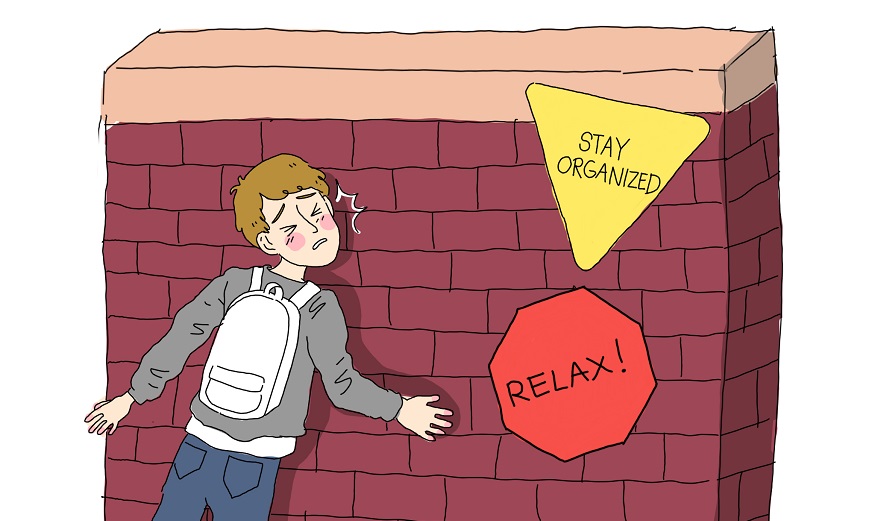Shaking the Break and Getting Back Into the Groove
The first week of classes are over. While it is nice going over the syllabus and all the course expectations over the first two to three classes, there also comes a sense of fear.
We all have thought this way at one point: “How am I going to handle my schedule?”, “This course is going to be too hard!”, and the question I seem to ask myself every five minutes, “Why am I still in school? I’m just going to drop out.”
Let’s start this off by stating a simple fact: you can do this and you don’t need to drop-out.
There, that was simple.
But it isn’t always that easy. Professors and their “scare tactics” (coursework, amount of homework you will have per night for the course) often make for a terrifying beginning of the quarter.
The beginning of every term is difficult—it wouldn’t be college if it weren’t—and all students need advice, even if we don’t believe so.
Here are a couple tips on how to get ahead and avoid unwanted stress this quarter.
STAY ORGANIZED
Whether that be through work, school, or homework schedule. Being organized and attentive to details will help the quarter move along faster.
Highlight test, exam, and paper due dates when the syllabi are handed out. Group projects are often a large portion of the grading scale, so keep note of the requirements early to ease your mind in the future.
Keeping a planner—which you can buy in the UWT bookstore, next to Starbucks—or using a memo pad on a device like a cell phone, iPad or calendar app. These tools are essential for a student that is going to school full-time and also works on or off-campus.
INTRODUCE YOURSELF TO INSTRUCTORS
UWT instructors are there to help you when you’re struggling. With an 18:1 ratio (according to the UWT website) professors are placed in smaller class sizes for the students’ benefit. Taking advantage of that is not only smart, but extremely beneficial to how much learning takes place during the course.
Smaller class sizes at UWT means students can take advantage of more one-on-one opportunities with faculty. Students gain comradery with professors while getting assistance with what they are struggling with. Approaching professors after class and taking advantage of open office hours will make for a more organized quarter.
One does not have to be an extrovert to ask for help. Pulling the instructor off to the side and acknowledging that you might not be the most vocal person in the course will not affect your grade; there are always other options.
RELAX
The New York Times, The Huffington Post, and Inside Higher Ed have written articles related to students and educational stress. According to Inside Higher Ed, “A quarter of students surveyed in the latest National College Health Assessment reported that stress has hurt their academic performance, with such impacts as lower grades or dropped courses.”
Having a friend, mentor, staff/ faculty, or family member will ease the stress of the school year. Mentors will often explain personal struggles in their life and how they overcame them. More common than not, simply talking to someone about being stressed out will help relieve the stress.
Remember, you’re not in this alone.
Take some time out of your day to look back at your accomplishments, whether that be acing a test or getting a shout out in class. Treat yourself to a night/day out on the town, don’t take yourself too seriously.
The UWT counseling center— which is located in MAT 354—is open 8 a.m. to 5 p.m. Monday through Friday. On Tuesday and Wednesday, appointments can also be made from 5 p.m. to 7 p.m.
HAVE SNACKS
Proper nutrition is vital to getting through a day. Some students will spend all day on campus; some will only be here for an hour or two. Regardless, it’s still important to take care of yourself by properly eating.
There are many places to eat around campus—for example, Jimmy Johns, Anthem, Subway, and Abella’s Pizzeria—but they might not be the healthiest of options. Packing a lunch or even just some snacks is beneficial to both your wallet and your health.
When the body is not properly nourished the body suffers. When you do not eat, the ability to properly focus is lost, and your body goes into starvation mode. Six hours after eating, the body breaks down the food and fuels you for the day. After the six hours you begin to feel hungry and the energy will be drained.







